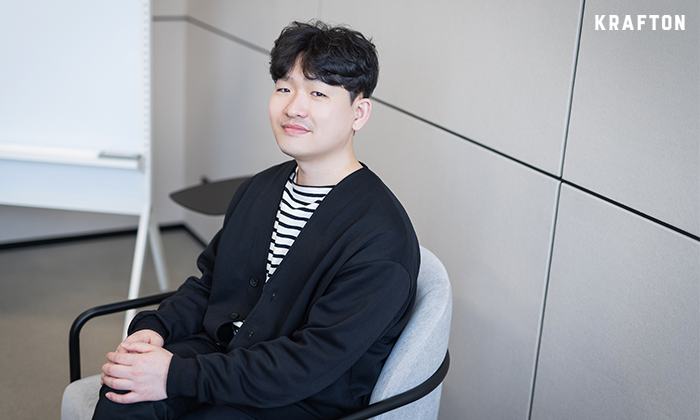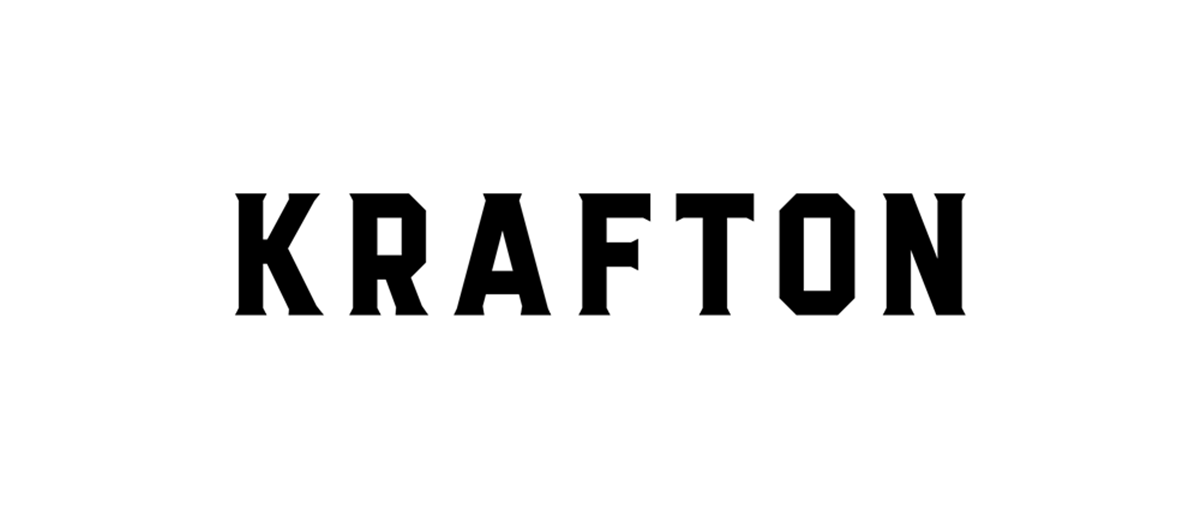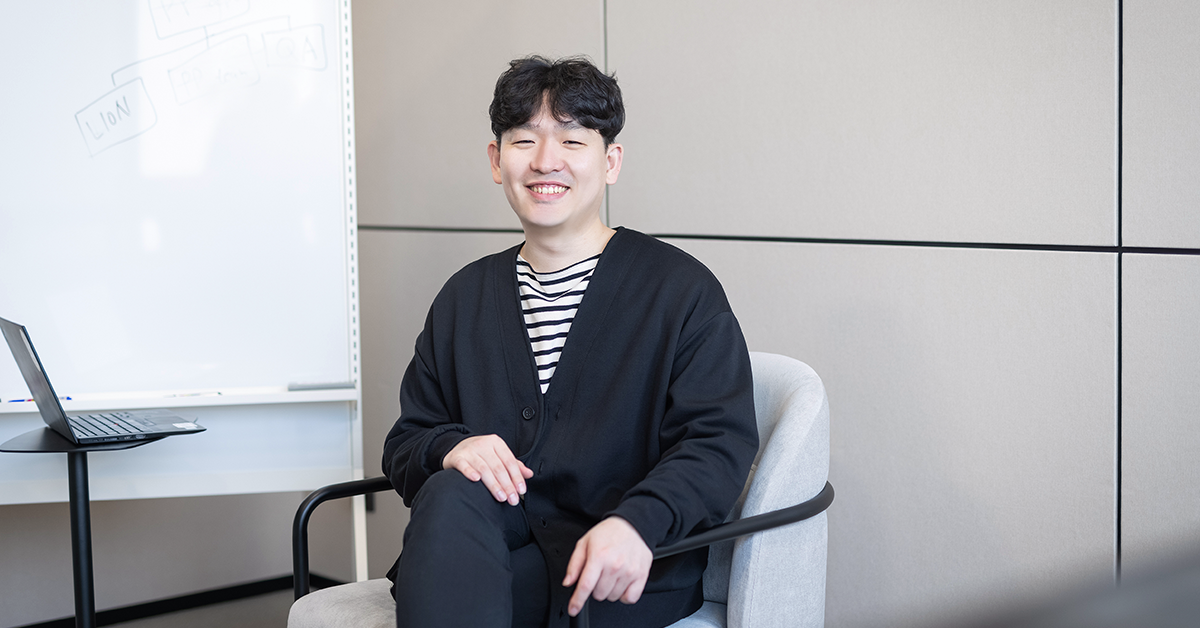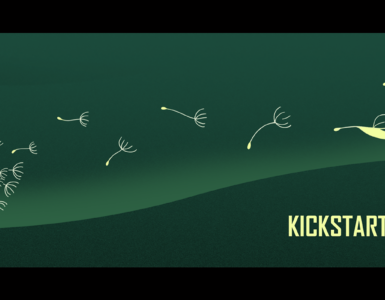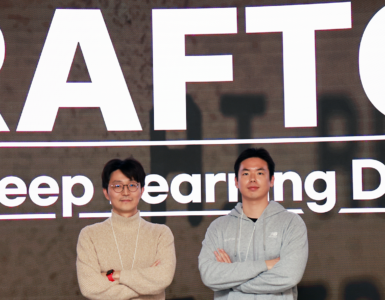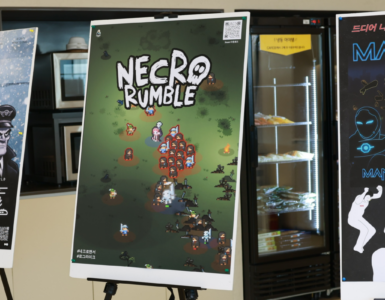While there is a myriad of new games rolled out in the market every year, KRAFTON is working on various development project at the same time. Aiming at supporting the developers, KRAFTON runs a unit called Publishing Producer Dept. and KRAFTON Blog has met its lead Koosung Jeong. He stressed that this unit is based on the company’s long-standing efforts to come up with a proper process and system that help make more good games. Read on to find out more about the Publishing Producer Team and KRAFTON’s unique culture in it.

Nice to meet you. Could you please introduce yourself to our readers?
My name is Koosung Jeong and I am the lead of the Publishing Producer Department (PP Dept.) under Studio Management Division of KRAFTON.
Could you introduce the PP Dept. for those who are not familiar with it?
There are four teams in the PP Dept. Starting from the “Publishing Producer Team (PP Team)” that I’m going to talk about today, it also has the “L10N Team,” which helps the localization of our games, as well as the two “QA Teams.” We have about 30 members in the PP Dept. as 11 of them belong to the PP Team.
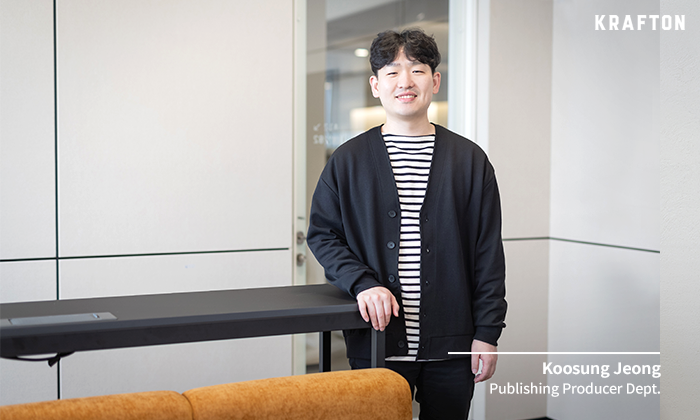
What are the responsibilities of the PP Team?
The most important tasks are the planning and managing of the proposal process for new titles, as well as of the milestone review process for the ongoing projects. I’ll tell you in detail later.
Secondly, the PP Team designs and operates KRAFTON’s developer ecosystem such as the “Challengers Dept.” At the Challengers Dept., there are many developers who plans to build a prototype for the game they want to make, ones who seek for a career transition or career development, and those who need time before jumping into a new project after the previous one is discontinued. Here, they can set their own tasks as developers and get productive feedbacks from experienced leaders of each job group. The PP Team led the initial planning for this program in 2021. Now that the program is on the track, the Program Mgmt Cell under the Challengers Dept. is running this program.
The third job is to work on the assessment process for new studios or dev teams that might join KRAFTON. Of course, I don’t mean that the PP Team members are making the assessment by themselves. They invite development leaders from all around KRAFTON and support them in making appropriate assessment for the potential investments.
What is the milestone review?
At KRAFTON, all projects that are working on a new title are subject to the milestone review once in every three months. We call this process “The Perspective” since we invite those who can give quality advice to the projects from many different perspectives. Our creative advisors and experienced development leaders participate in milestone review meetings to share their ideas and opinions on the new titles that KRAFTON is making.
We do this to help the dev team think about the project from various angles based on different ideas and opinions. It’s totally up to the dev team’s decision whether to accept the suggested ideas or not. In the process, the PP Team arranges for the milestone review meetings where the dev teams can get the ideas of various perspectives.
The PP Team seems to be a unique organization / corporate culture of KRAFTON. How was it created?
To produce a good game, competent individuals and the system that supports them are needed. Not just the support that allows the individuals to fully show their competence, the system also includes the “constraints.” Abundance doesn’t always lead to a good game. Personally, I used to work as a producer and when I was making games, I sometimes did self-justification and compromise. Someone within the company should make questions about the game and the project. But not everybody can do this kind of work because the team members are busy to produce their games.
We had voices that call for a unit dedicated for such matters even though it’s not by the dev team or the development leaders. That’s how the PP Team was organized. It’s the product of hundreds of thousands of thoughts over how to produce games and manage the production. We take one or two steps back and think from different angles about the things that are needed for more interesting games. We support everything that is necessary for a good game. Obviously, it’s not easy.
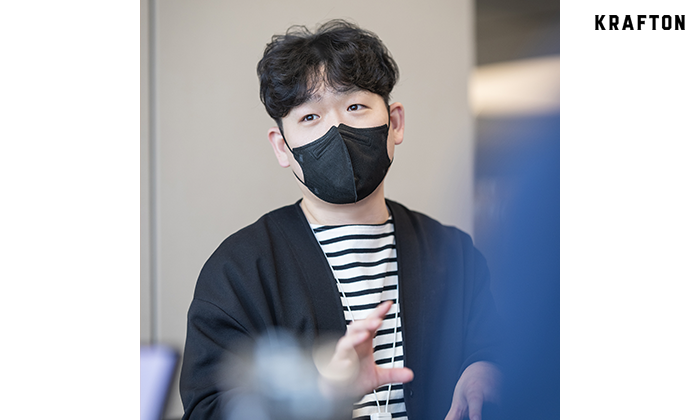
Is every new title in KRAFTON managed by the PP Team?
Every project that kicks off inside KRAFTON HQ gets to work with us. We also cover new projects of our independent studios. But the depth we are involved in is not always the same.
There might be some teams that ask the PP Team for help.
Yes. We’re frequently receiving inquiries if there are potential partners outside the company that can help our dev teams with their own knowhows on game development. The PP Team gets various information as we work with many different dev teams. We can tap into such an information to arrange for meetings to help our dev teams create synergy.
Also, we’re helping the dev team when they want to get user feedbacks. We have “User & Game Analysis Part” under the PP Team and this unit is dedicated to this matter. User & Game Analysis Part manages what we call “Gamer Profile” to make Focus Group Interview (FGI) and Focus Group Test (FGT) as effective tools that the dev teams can learn from the users. It also works on improving test methods. Those who have tried FGIs and FGTs are asking us again when they need more tests.
From what you’ve said about the team, it seems that only those who have experiences in game production are able to work here.
Some may think that only those with producer-level experiences can work in this team, but that’s not true. We also have junior-level members in the team. For project managers of the PP Team, the understanding on game contents is more important than the knowledge on development. It is crucial to experience games of various genres. As the PP Team communicates with the dev team as a supporting arm, we can’t get close with the developers if we give them the impression that we don’t understand games. We need to understand the content under development in order to expand the communication with those who are making it. Without the proper comprehension on the game content, our role turns to nothing but a messenger and we can’t have much self-efficacy ourselves. The members of the PP Team have their own core genre. We play diverse games and have a depth of a specific genre, for instance, shooter, strategy and action. Such personal experiences and understanding are all reflected to our work.
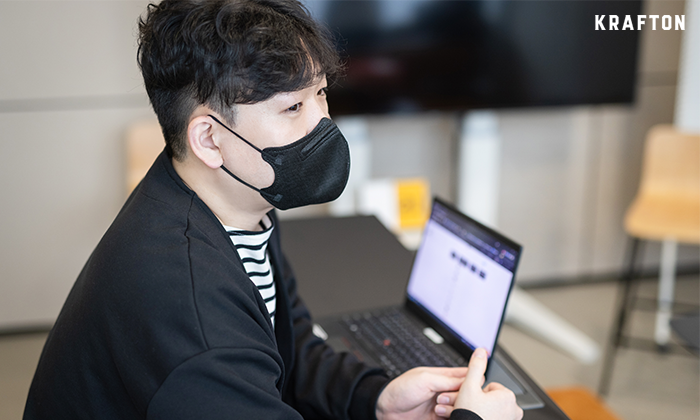
It seems that communication skills are very important in what the PP Team does.
You’re right. We give feedbacks with an objective viewpoint and speak out everything we have in mind. That’s how the system is designed to work. Since we frequently have conversations with the development leaders, the level of communication is quite high. We should try not to be obsessed with the hierarchy or seniority and instead we should try to give our opinions in a proper and gentle way. It may sound difficult. The key here is “context.”
One of the essential skills we need is to deliver the process and context of our messages, not just bluntly telling them that “It’s not good.” And to this end, we should always sort out what we are trying to say in advance to avoid misunderstandings. If we successfully deliver the context, the development leaders in KRAFTON will thoroughly understand our intentions.
Other than communication skills what are the other capabilities that the members of the PP Team need?
We need deep understanding on game contents in general, and we also have to know how to objectify ourselves. For instance, people who played the League of Legends for 1,000 hours might claim that they’ve played games a lot. In this case, we can say that they’ve played the League of Legends a lot. But it doesn’t necessarily mean that they have extensive experiences in gaming in general. If we can objectify ourselves as a game content consumer, we should say, “I’ve played the League of Legends a lot and thus I can tell you things about competitive games. But in regard of games in other genres, I’m not that sure.”
When we get to take charge of a certain game in this team, we have to recognize the parts that we cannot fully understand and ask for advice. We should objectify ourselves first before jumping to extensive communication. I believe those who have great enthusiasm in games, love playing various games of diverse genres and know how to objectify themselves in terms of game contents are fit for the PP Team.
People say, “Markets are never wrong.” When a game succeeds in the market, we should look over its success from the perspective of the market. Although we cannot agree with it 100 percent, we should be able to understand it objectively.
It still seems that one needs basic knowledge on development at least to work here.
Yes. We’d welcome people with experiences in game development. But it’s not a must. I used to be a developer and I liked to make games. But I didn’t have any game that I really wanted to make. To make a meaningful game, we need to know clearly what we want and be very eager for it. But I wasn’t. I think there would be many like me because creating new things and developing games are different.
People who have experiences and desire to keep making games, but without further creative idea for a new game can enjoy working in the PP Team. They will be able to find diverse creative ideas here.
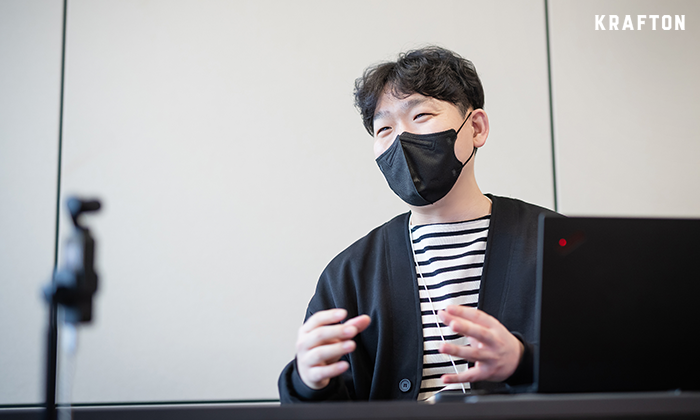
Is there any case that the PP Team had positive impact on a project?
I saw a project that has lost its direction. I thought that this project would have faced a big trouble unless a proper measure was taken immediately. We talked with the dev team for a week on this matter. We could clarify the direction through that week-long discussion and the project is still going on now. There are certain projects that make us doubtful. All projects should be proceeded in logically acceptable ways. Unfortunately, some projects are not done in such ways. When that happens, we step in to have talks with the dev team. Sometimes, things get clearer after questions and discussions.
There was another case in which we were proud of ourselves as we gave a positive influence for the members of KRAFTON, though the project was discontinued. When a project is discontinued, we interview all those who participated in the project and share them with all data we have, including the milestone review meeting videos. Fortunately, most of them accepted the situation and started off for their new challenges. There were some who even told me that it would have been disappointing if we had not decided to discontinue the project. It’s painful and difficult to make such a decision. But I think it’s still valuable thing to do.
What is the ultimate goal of the PP Team?
A game-making business requires efforts of two different areas. One is about how to make games and how to present them to the users. The other one is about how to manage the lineup for new titles and how to allocate the budget to each pipeline. Both are very important tasks.
The PP Team is going to acquire the “management view” and advance expertise in the field. This expertise will help us have a wider business perspective. We will have more projects in the future and our team will get bigger accordingly. While supporting various new game projects with our team members, I hope to fill the shelf in the office with the games that we’ve helped to launch. It would be nice to have a title that wins an award among them. (Laughter)
And I hope that the producers in KRAFTON to utilize us more often and ask us for anything that is needed in developing games. We are willing to be busier. (Laughter)
